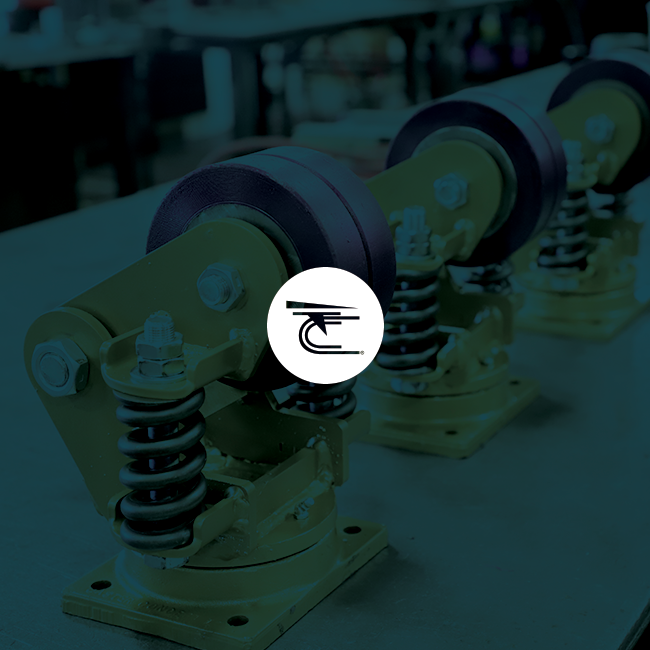

In the movie business, the term “casting” refers to the selection of the talented players who, presumably, will determine whether the finished film will be a blockbuster, or just plain busted.
In the development of polyurethane parts for industrial caster wheels, casting, too, plays an important role that can either make or break the finished product. That’s why, in the process of fabricating heavy-duty casters, the task of polyurethane casting – meaning, the pouring of molten poly into molds – is approached with great care.
So what does it take to ensure that the polyurethane components on industrial caster wheels are fabricated to rigorous standards? Three conditions must exist before the first drop of material is poured:
When it is time to fill the mold, the isocyanate and the curative are injected via separate valves into the mix chamber and mixed at high speed — 4500 revolutions per minute (RPM). This action ensures complete mixing of the two liquids, and also that the chemical reaction begins precisely as the mold is being filled with liquid polyurethane.
Poly poured into mold at Caster Concepts
Ensuring perfection at this stage requires precision and timing, since a small window exists during which to pour. The pouring is done manually — and great care is taken — so no air becomes trapped in the material that might weaken the cross-linking of the material. To accelerate the chemical reaction, a catalyst may also be introduced at this point to assure adequate strength at the time of demolding, as well as to enhance the physical properties of the material when fully cured.
That same chemical reaction also creates self-generated, exothermic heat that can reach 250 to 350 degrees in the mold. More heat is then introduced by placing the molded part and mold in a processing oven at temperatures ranging from 350-390 degrees for approximately 7-12 minutes. All of this heating is necessary to keep the chemical reaction consistent, and to ensure the strength of the resulting poly part.
Finally, the part is removed from the oven, demolded, and cured for 16 hours before the process is considered complete – resulting in a lasting, strong and reliable poly part for industrial caster wheels that meet our rigorous standards – and yours.
For more information regarding polyurethane casting visit our website.